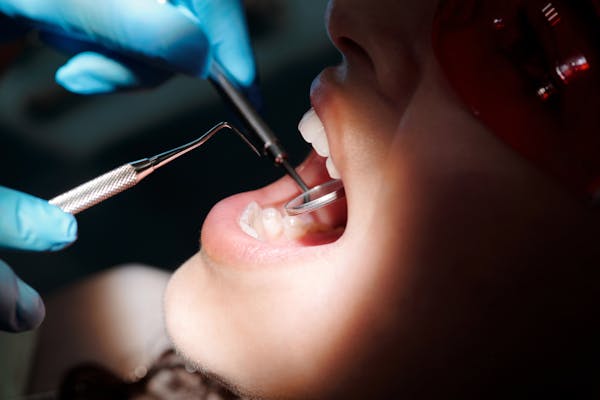Over the decade, women's health has been a worldwide concern. Certain unique health challenges must be encountered in the life of a woman, which requires specialized modes of approach in order to enable her to regain better health status.
A holistic approach to women's health-from reproductive health to mental well-being-is valuable not just for the individual woman but also for the family and the community. The access to information, health care services, and support systems becomes one important constituent of empowering the women to lead a healthy and fulfilling life.
A holistic approach to women's health-from reproductive health to mental well-being-is valuable not just for the individual woman but also for the family and the community. The access to information, health care services, and support systems becomes one important constituent of empowering the women to lead a healthy and fulfilling life.
The core of reproductive health comes in, firstly, from the body of a woman.
This field has a wide range of issues, starting with menstrual health to family planning, even up to maternal care. Access to reproductive healthcare services ensures that women make informed decisions about their bodies and family planning options. For example, going on a routine checkup and screening for cervical cancer or STIs prevents life complications later in life.
This field has a wide range of issues, starting with menstrual health to family planning, even up to maternal care. Access to reproductive healthcare services ensures that women make informed decisions about their bodies and family planning options. For example, going on a routine checkup and screening for cervical cancer or STIs prevents life complications later in life.
Family planning services, such as contraception, empower women to take control of their reproductive lives and decide whether or when to become pregnant. Such agency promotes a woman's psychological and physical health and her economic security. Furthermore, proper maternal care during pregnancy, childbirth, and the postpartum period is crucial to reduce maternal mortality and improve outcomes for mothers and infants.
Mental Health and Emotional Well-being
Besides the health of their bodies, mental and emotional well-being also plays a very vital role in the all-round health of every woman.
Some of the mental disorders that affect women at a higher rate than men include depression, anxiety, and postpartum depression, among others brought about by hormonal changes, pressure exerted by society, and caregiving burdens. It is essential that women receive mental health services and support mechanisms to enable them to cope with stress, emotional trauma, and other mental disorders.
Some of the mental disorders that affect women at a higher rate than men include depression, anxiety, and postpartum depression, among others brought about by hormonal changes, pressure exerted by society, and caregiving burdens. It is essential that women receive mental health services and support mechanisms to enable them to cope with stress, emotional trauma, and other mental disorders.
This would encompass not only prevention but also the provision of due care. In this respect, the creation of a facilitating environment in which women will have no problems discussing their mental state, receiving on time counseling, therapy, or medication that encourages them toward healthy habits, such as mindfulness and stress management.
Nutrition and Lifestyle Choices

Women's health is based on proper nutrition and good health. The needs of women for nutrition are specialized throughout the life cycle, from adolescence, into pregnancy, and through menopause.
Assurance of adequate intake of nutrients-iron, calcium, folic acid-avoids conditions such as anemia, osteoporosis, and other deficiencies that disproportionately affect women.
Assurance of adequate intake of nutrients-iron, calcium, folic acid-avoids conditions such as anemia, osteoporosis, and other deficiencies that disproportionately affect women.
Another important component of a healthy lifestyle involves regular exercise, hydration, and weight control. Women should determine what type of physical activities they enjoy engaging in, such as yoga, swimming, and walking. A healthy lifestyle will ensure that the body is healthy, the mind is clear, and that mood and self-esteem are stable.
Preventive Healthcare and Screenings

The preventive health care incorporates periodic checkup and screening that may help in early detection and treatment of conditions that could cause health damage. Annual physical exams, mammograms, Pap smears, and bone density tests can notice diseases like breast cancer, osteoporosis, and other diseases affecting women. It helps and increases the early detection by screening programs immensely on better treatment outcomes, decreases healthcare costs, and improvement in quality life.
This will help to encourage women in seeking care for prevention, thus shifting the paradigm from reactive healthcare to proactive health management.
Large educational and awareness programs have tremendous potential that might help women understand the necessity for these screenings, while this may further open up avenues leading to the utilization of such healthcare services.
Large educational and awareness programs have tremendous potential that might help women understand the necessity for these screenings, while this may further open up avenues leading to the utilization of such healthcare services.
Breaking Barriers to Healthcare Access
While there has been progress, many women today experience difficulty when accessing health care. In developing countries, it could be in the form of deficiency in healthcare infrastructures, financial inability to pay, or cultural stigma. Even in the most developed parts of the world, inequities persist due to socioeconomic status, racial origin, or geographic position.
Improvement efforts in women's health, therefore, should take center stage in addressing these barriers and ensuring that healthcare services are accessible, affordable, and culturally sensitive. Governments and healthcare organizations should work to expand services, provide insurance coverage, and educate women about available resources.
A Holistic Approach to Women's Health
The broad approach to women's health encompasses not only treating physical ailments but also mental, emotional, and social well-being. Emphasizing reproductive health, mental health, nutrition, care in prevention, and facilitation of access to services will help them live a healthier and more empowered life. It takes governments, healthcare providers, and communities to build a health system that meets the unique needs at every stage in a woman's life.
Investing in women's health translates into a stronger family and better societal health. Furthermore, it takes a whole-of-health approach to health not just to survive but to thrive.






